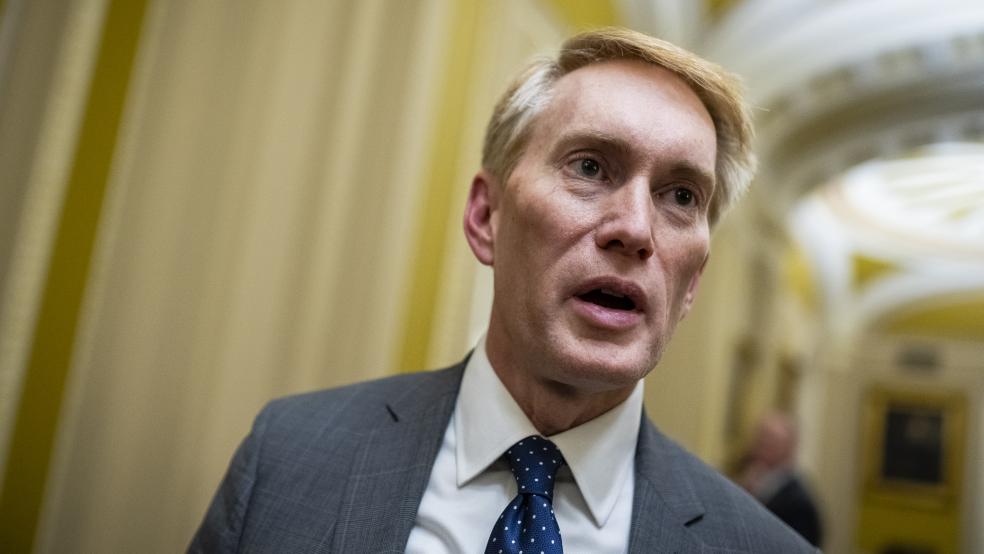The Senate’s drawn-out struggle to reach a deal on border policy changes and aid to Ukraine continues. But even before any agreement is reached, tensions have already risen with the Republican conference and tempers reportedly flared at a party lunch Tuesday.
Sen. James Lankford, the lead Republican negotiator, told his colleagues and reporters today that there won’t be any vote on a deal this week, though he still hopes to be able to produce legislative text.
The challenges to reaching a final deal are still considerable. For one thing, appropriators still have to figure out how much the deal would cost and how to budget for it. “It will definitely be more” than the $14 billion in border funding the White House originally sought, said Sen. Susan Collins of Maine, the top Republican appropriator, according to Punchbowl News. The border funding is a relatively small portion of a White House national security request that totaled more than $100 billion, including $61 billion in aid to Ukraine and $14 billion for Israel.
And Senate conservatives are reportedly bristling at the secretive nature of the talks and pushing back on the prospective deal. “Republicans including Sens. Mike Lee (Utah), Ron Johnson (Wis.) and Ted Cruz (Texas) complained about being left in the dark about key details and warned that the deal could hurt Republican chances of keeping control of the House in the 2024 election,” The Hill’s Alexander Bolton reports, citing senators present at the tense GOP lunch meeting.
Utah’s Lee reportedly said that senators need at least three weeks to review the package.
The pressure on negotiators has been mounting, and it could grow further if former president Donald Trump dials up his demands for a more partisan approach.
“There are many on the hard right who are trying desperately to kill these negotiations,” Senate Majority Leader Chuck Schumer said Tuesday, urging patience.
Some key Republicans, including Senate Minority Leader Mitch McConnell, support a deal and describe it as the party’s best opportunity to win Democratic concessions on immigration policy — an opportunity that won’t come again if Trump were to be reelected. “That is the signal we want to send to the House: that our Republican conference, the majority of us support it,” North Carolina Sen. Thom Tillis told reporters, according to The Messenger.





